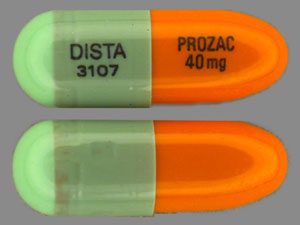What Is Hydrochlorothiazide Used For

Hydrochlorothiazide, commonly referred to as HCTZ, is a type of diuretic medication that has been widely used in the treatment of various medical conditions for several decades. It belongs to the class of thiazide diuretics, which work by helping the kidneys remove excess fluid and salt from the body through urine. This mechanism of action makes hydrochlorothiazide particularly useful in managing conditions characterized by fluid retention and high blood pressure.
Primary Uses of Hydrochlorothiazide:
Hypertension (High Blood Pressure): One of the primary uses of hydrochlorothiazide is in the management of hypertension. By reducing fluid volume and increasing sodium excretion, it helps to lower blood pressure, thereby reducing the risk of heart disease, stroke, and kidney damage.
Edema: Hydrochlorothiazide is used to treat edema (swelling caused by excess fluid) associated with congestive heart failure, liver disease, and a kidney disorder called nephrotic syndrome. It helps reduce swelling in the feet, ankles, and hands by increasing urine production.
Nephrogenic Diabetes Insipidus: This condition is characterized by the kidney’s inability to concentrate urine, leading to excessive thirst and urination. Hydrochlorothiazide can help reduce urine volume in some cases of nephrogenic diabetes insipidus.
Secondary and Off-Label Uses:
Beyond its primary indications, hydrochlorothiazide is sometimes used off-label for other conditions, including:
Osteoporosis: There is some evidence suggesting that long-term use of thiazide diuretics like hydrochlorothiazide may help reduce the risk of bone fractures in older adults by promoting calcium retention in the bones.
Nephrolithiasis (Kidney Stones): Hydrochlorothiazide can help prevent the formation of certain types of kidney stones by reducing the amount of calcium in the urine.
Hypercalciuria (Excess Calcium in the Urine): It is used to treat hypercalciuria, which can lead to kidney stones.
Important Considerations:
While hydrochlorothiazide is effective for its intended uses, it can also have side effects, including increased urination, dehydration, electrolyte imbalances, and potentially, an increase in cholesterol and glucose levels. Patients should monitor their blood pressure, kidney function, and electrolyte levels regularly while on this medication. It’s also crucial to follow the prescribed dosage and discuss any concerns or side effects with a healthcare provider.
Interactions and Contraindications:
Hydrochlorothiazide can interact with other medications, including NSAIDs, lithium, and digoxin, among others. Certain conditions, such as severe kidney or liver disease, gout, and systemic lupus erythematosus, may require cautious use or avoided altogether. Pregnant or breastfeeding women should consult their healthcare provider before taking hydrochlorothiazide, as it may affect the fetus or baby.
Conclusion:
Hydrochlorothiazide is a valuable medication in the management of hypertension, edema, and other conditions characterized by fluid retention. Its effectiveness, however, must be balanced with potential side effects and interactions. Patients should work closely with their healthcare providers to ensure safe and effective use of this medication.
What are the common side effects of hydrochlorothiazide?
+Common side effects include increased urination, dizziness, headache, and potentially, increased cholesterol and glucose levels. Serious side effects can include severe allergic reactions, electrolyte imbalances, and kidney problems.
Can I stop taking hydrochlorothiazide if I feel better?
+No, do not stop taking hydrochlorothiazide without consulting your doctor. Stopping the medication abruptly can lead to a rapid increase in blood pressure, which can be dangerous.
How long does it take for hydrochlorothiazide to start working?
+Hydrochlorothiazide can start working within a few hours, but it may take several days to a week to see its full effect on blood pressure. It is crucial to be patient and continue taking the medication as directed by your healthcare provider.
Can I take hydrochlorothiazide during pregnancy or breastfeeding?
+It is essential to consult your healthcare provider before taking hydrochlorothiazide during pregnancy or breastfeeding. While it may be necessary in some cases, its use needs to be carefully considered due to potential effects on the fetus or baby.
What should I do if I miss a dose of hydrochlorothiazide?
+If you miss a dose, take it as soon as you remember, unless it’s almost time for your next dose. In that case, skip the missed dose and continue with your regular schedule. Do not take extra medicine to make up for the missed dose.



